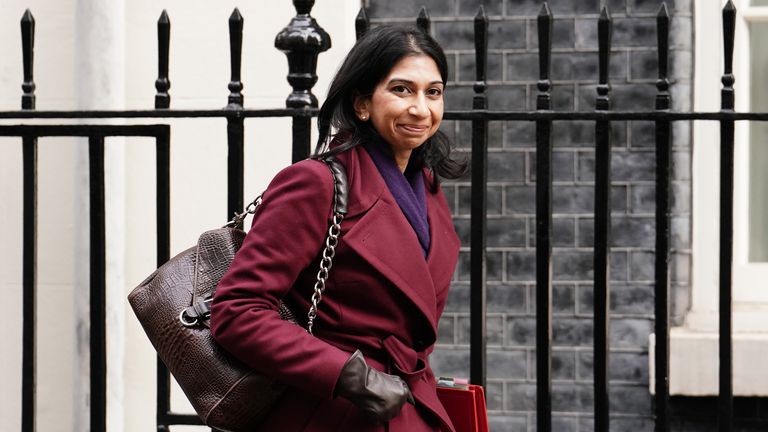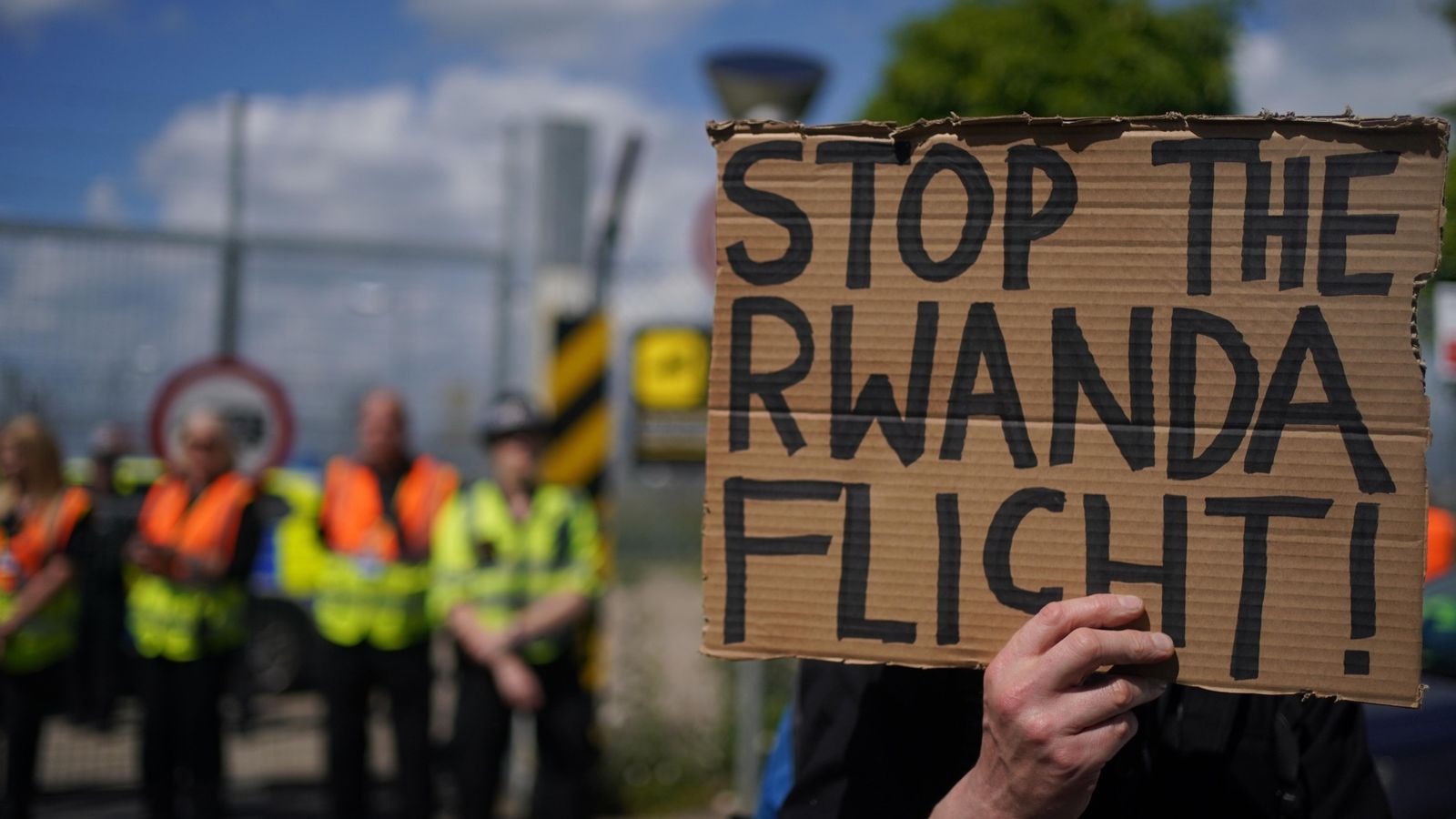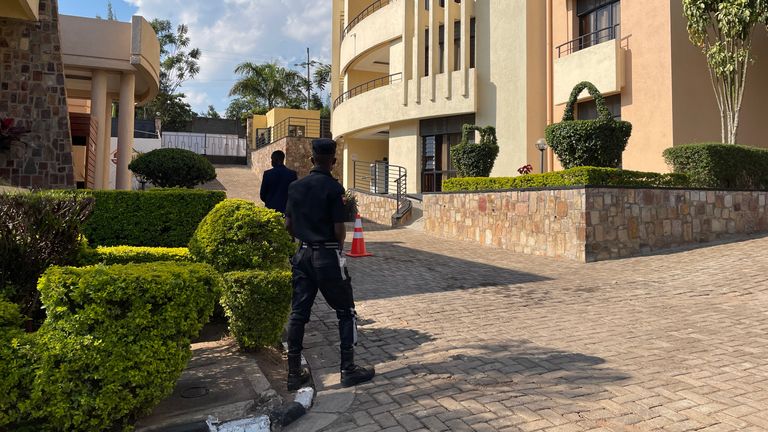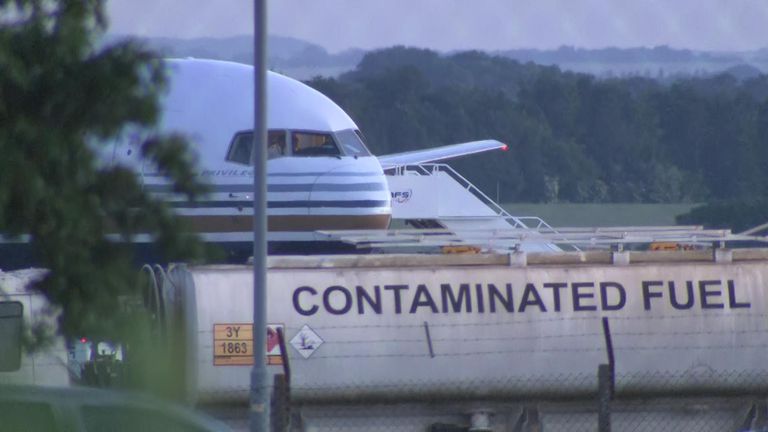
The home secretary is set to travel to Rwanda this weekend as the government’s deal to send asylum seekers to the country remains mired in legal challenges.
It is 11 months since the UK agreed the deal, which would see people who claimed asylum in Britain deported to the central African nation to have their application processed, and if successful be settled there.
No one has made the journey yet, after a flight was stopped at the eleventh hour in June last year following an appeal to the European Court of Human Rights.
In a statement released on Friday, Suella Braverman said the “UK-Rwanda Migration and Economic Development Partnership is a ground-breaking approach that will act as a powerful deterrent against dangerous and illegal journeys such as small boat crossing”.
The plan was signed in April last year.
Throughout 2022, some 45,728 people crossed to the UK via the Channel – up 60% on the last year.
Ms Braverman said she was visiting Rwanda this weekend to “reinforce the government’s commitment to the partnership as part of our plan to stop the boats and discuss plans to operationalise our agreement shortly”.
Her visit comes as the government looks to ban people who arrive in the UK via non-standard routes from claiming asylum.
Ms Braverman said earlier this week that they would be sent to countries like Rwanda.
As part of her itinerary this weekend, she will meet President Paul Kagame and foreign minister Vincent Biruta – who signed the agreement with Ms Braverman’s predecessor Priti Patel.
She said: “While in Rwanda, I will be visiting some of the initiatives supported by the partnership, from long-term accommodation sites to vocational training and education centres.”
The UK has already paid £120m to Rwanda as part of the deal, with the costs of processing and integrating people set to be provided once they depart.
“These initiatives will offer migrants the opportunity to build new lives in Rwanda,” the home secretary added.
“The suggestion that Rwanda can only take 200 people is a completely false narrative peddled by critics who want to scrap the deal.
“Rwanda has the capacity to resettle many thousands of people, and can quickly stand up accommodation once flights begin.”
The 200 figure quoted was used by Rwandan government spokesperson Yolande Makolo when speaking to British journalists last year.
She clarified she was talking about the temporary accommodation available at the time, saying her government had the ability to “scale up very quickly” the number of people who could be admitted.
The figure has been used by Labour to attack the government’s claims that thousands of people could be sent to Rwanda.
Click to subscribe to the Sky News Daily wherever you get your podcasts
“Within three to six months, the Rwandan government will ensure that migrants are housed and integrated into local communities,” Ms Braverman said.
“I am looking forward to seeing some of the new, modern housing developments being built in Kigali, which will be used to house some of those resettled in Rwanda.
“Rwanda is a safe, welcoming and thriving country and ground-breaking partnerships like this show how we can tackle illegal migration, support genuine refugees and break the criminal people smuggling gangs’ business model.”
The plan would mean those sent to the country can apply for refugee status there and, if successful, would be given the right to remain in Rwanda, though not to return to the UK.
If unsuccessful, they could still be granted an immigration status or be removed to their country of origin.
Refugee charities called the policy “cruel and nasty” and said it would do nothing to deter people from travelling across the Channel on small boats.














